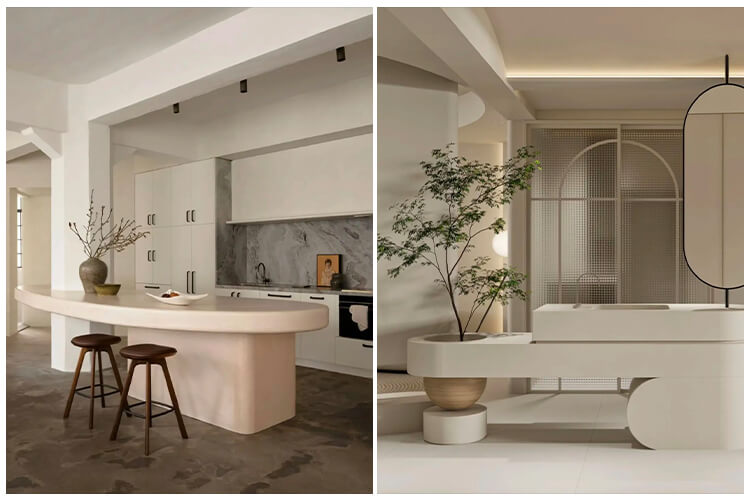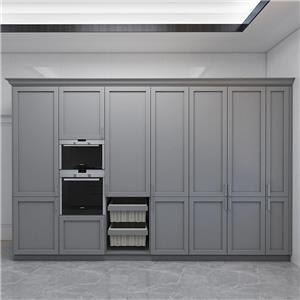5 Popular Design Styles for Kitchen Island
5 Popular Design Styles for Kitchen Island
The concept and definition of an island extend far beyond a simple addition of a kitchen operating surface. It encompasses a multitude of forms and designs that cater to different layouts and needs. In this article, we will explore five commonly used design styles for island, each possessing its own unique aesthetic and functionality.
Typically in the form of a central island, it has a square shape with convenient legroom to accommodate high stools. To enhance both comfort and the visual impact of the island, it is often designed with either recessed or suspended elements, providing a sense of volume and artistic expression.
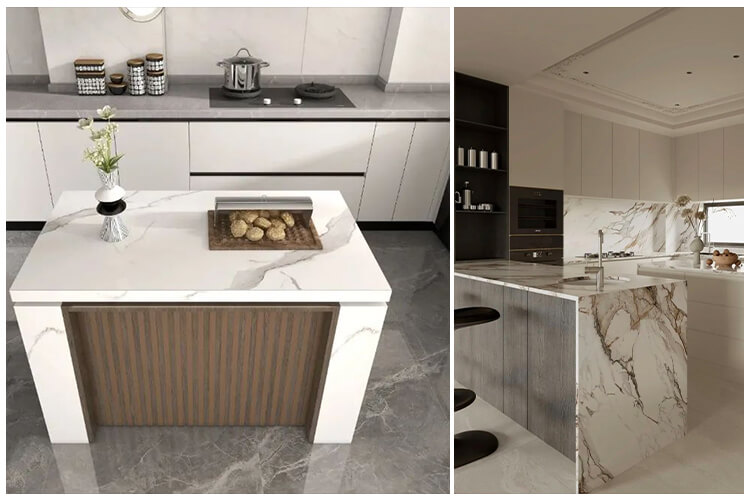
This is currently the most popular and highly sought-after form, often admired as an Instagrammable island countertop. By creating an 18-centimeter height difference between the island and the dining table, along with seamless integration at the connection point, it establishes a strong geometric symbol within the space. Moreover, this form offers increased versatility, allowing the dining table to serve various functions such as dining, socializing, studying, playing, or enjoying tea when space permits.
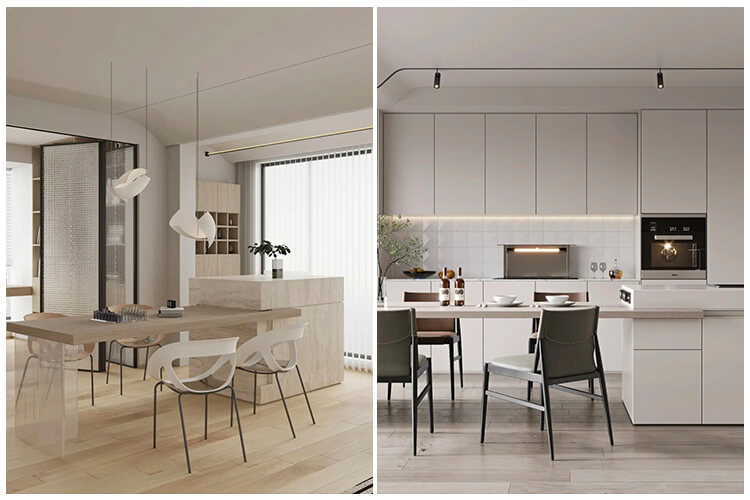
Integration with Structural Elements
Since an island countertop itself is a voluminous spatial element, it can naturally interact with the architectural structure of the space, giving rise to diverse forms and geometric sensations. This approach can be seen as a deconstructivist design where the island countertop is linked to the spatial structure.
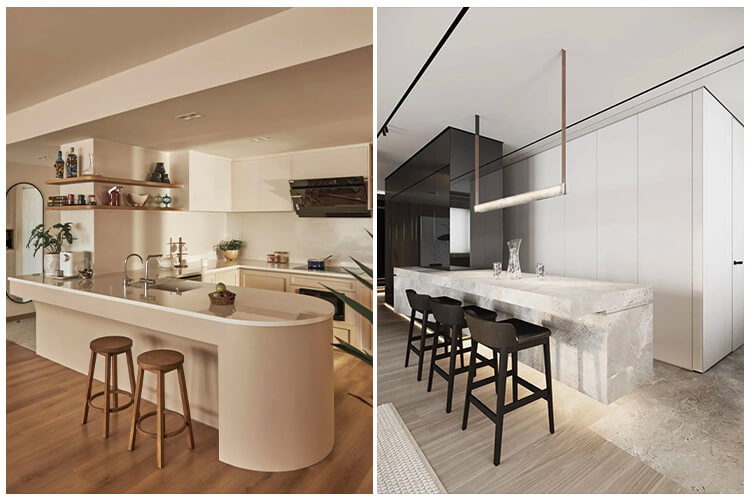
Similar to the integration with a television, this form aims to enhance the functionality of the island countertop. By incorporating seating areas on the countertop, it not only exhibits a strong geometric and artistic quality in its overall shape but also maximizes the efficient utilization of space and creates a visually expansive environment.
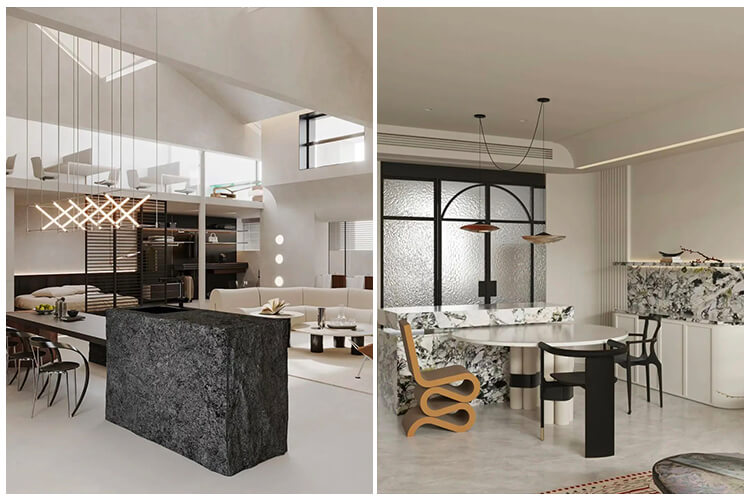
This form involves designing the island countertop with special styling elements, adding an ornamental aspect to it. However, it should be noted that this design approach may introduce increased construction complexity and cost.
